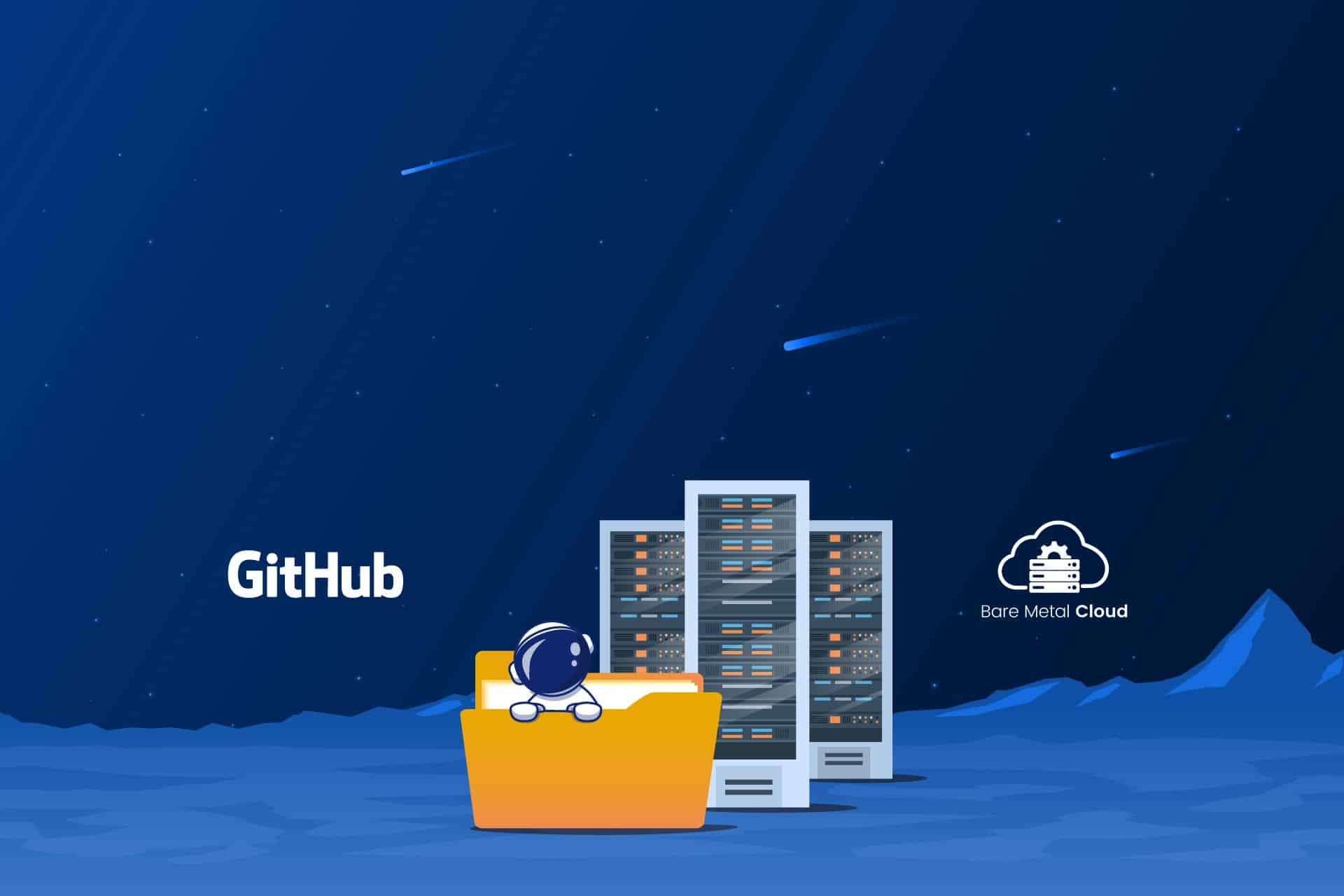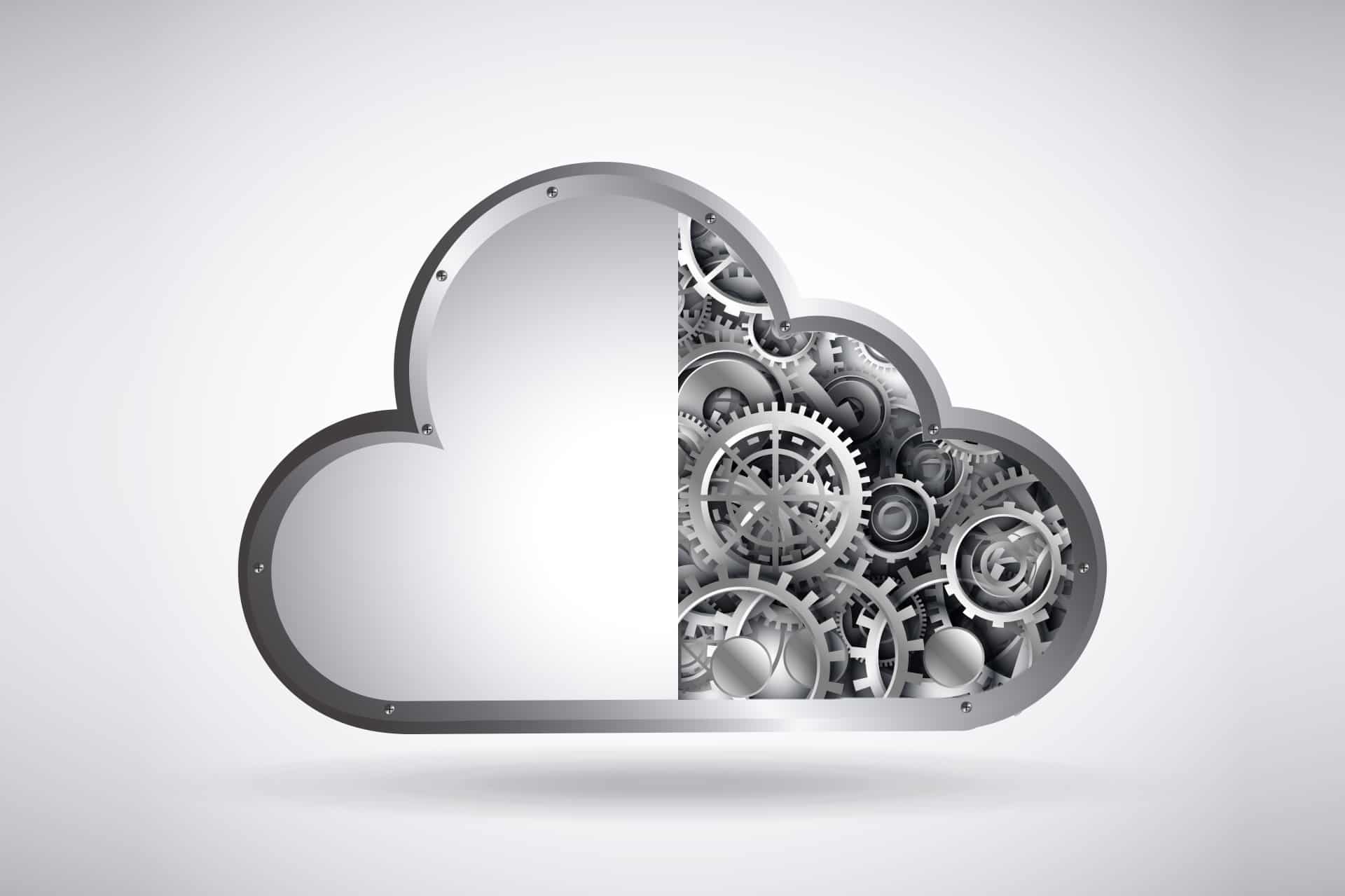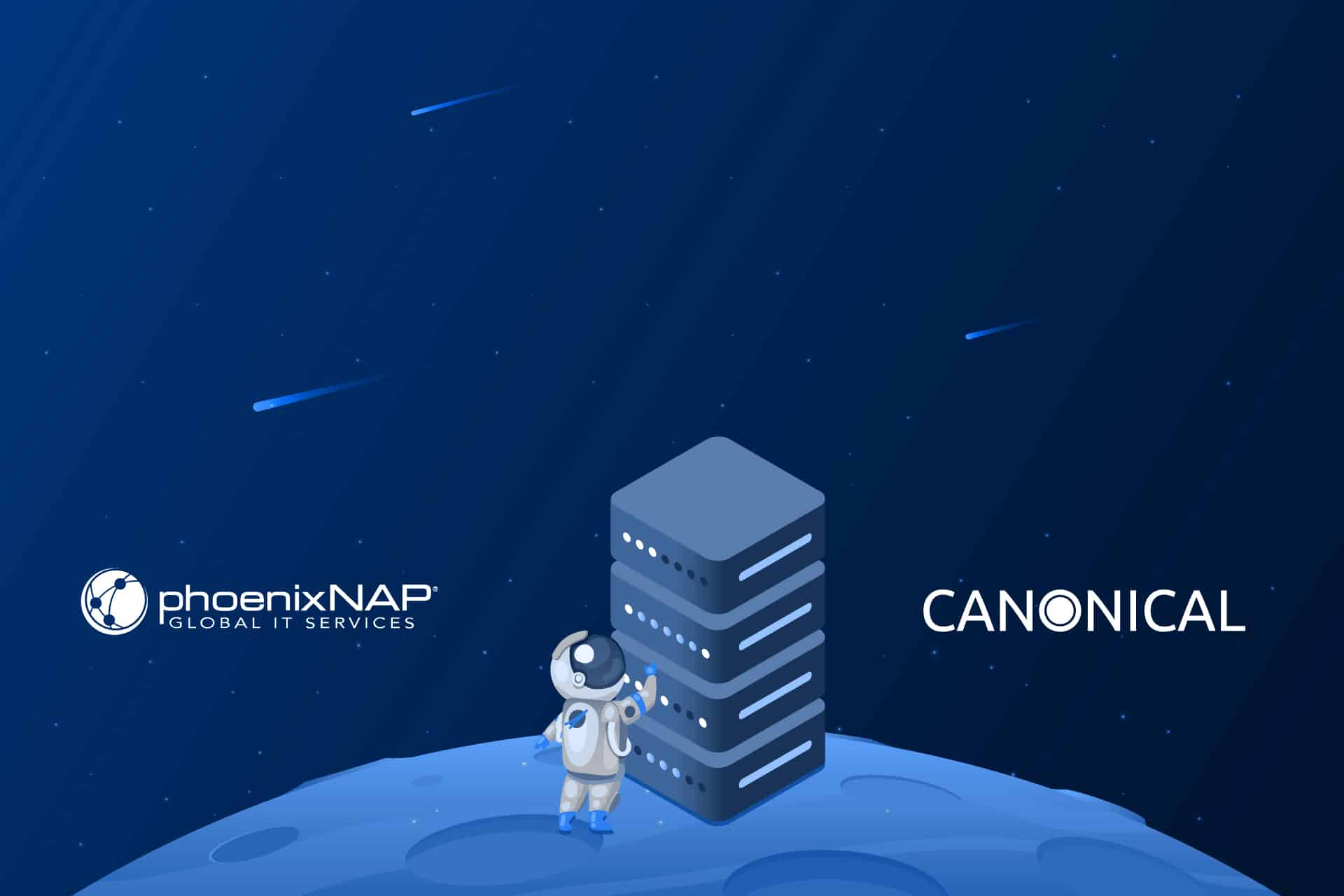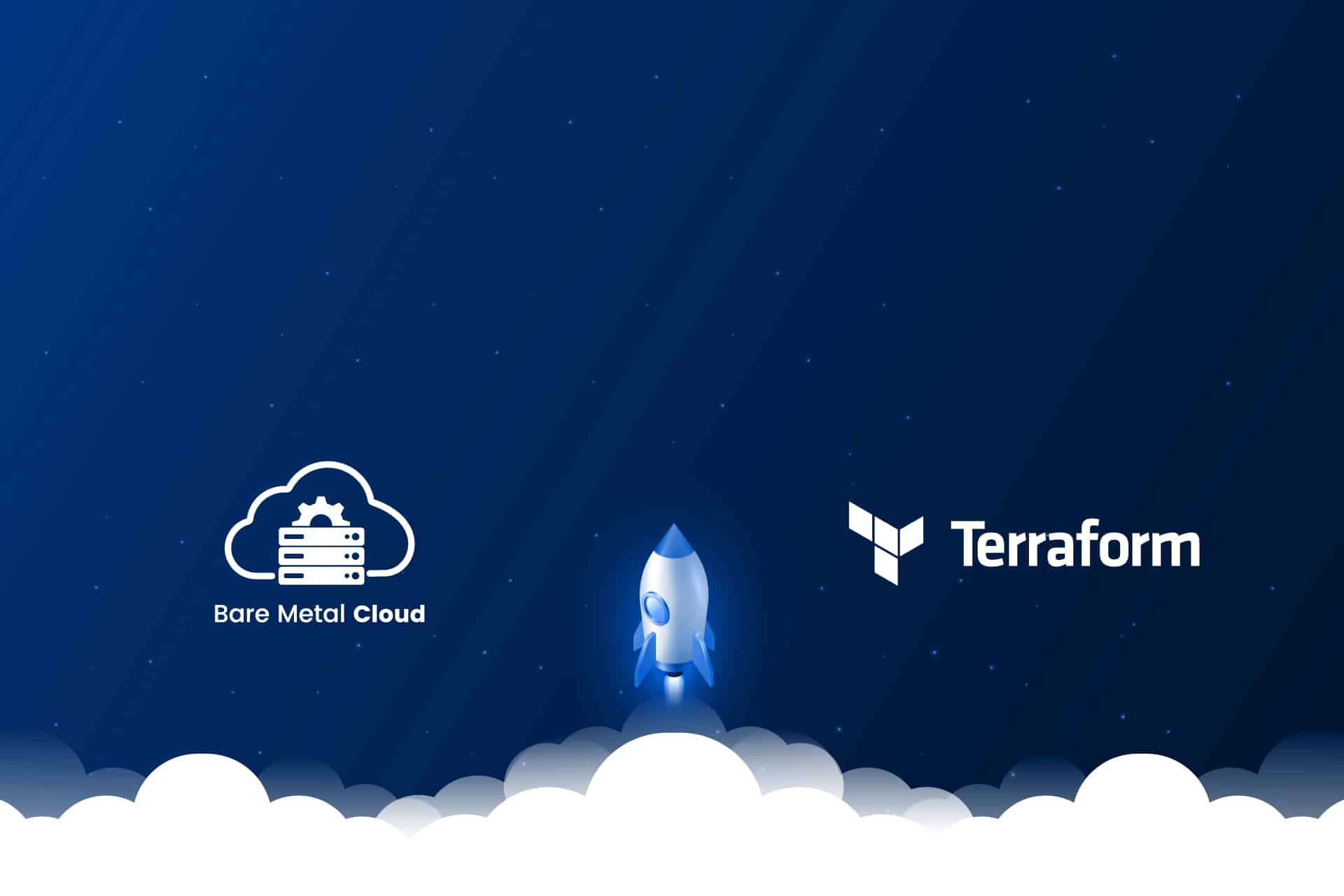Bare metal servers and dedicated servers each offer distinct features and benefits that suit different business needs. Bare metal servers provide the non-virtualized, high-performance capabilities of dedicated hardware combined with the flexibility and scalability of cloud services. In contrast, dedicated servers focus on delivering reliable server behavior and enhanced security due to the complete isolation of resources.
This article compares bare metal servers and dedicated servers to help you make an informed decision when choosing a server for your business operations.
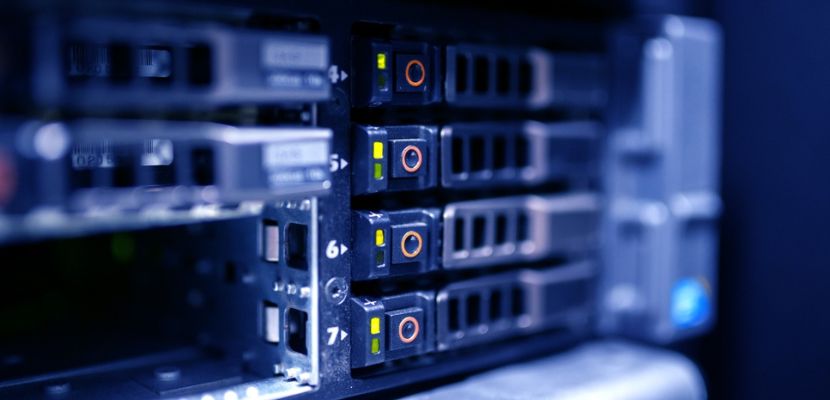
What Is a Bare Metal Server?
A bare metal server is a physical server with resources dedicated to a single user within a shared cloud infrastructure. They don’t include a virtualization layer, giving the user full control over the server’s hardware and resources. This direct access makes bare metal servers ideal for performance-intensive applications, high-traffic websites, large databases, and complex analytics tasks.
Bare metal servers are equipped with the latest hardware, typically designed to integrate seamlessly into a cloud environment. The cloud infrastructure around bare metal servers often includes additional services and features, such as API-driven operations, automated management, and orchestration tools.
These servers offer easier provisioning and are typically set up more quickly than dedicated servers. They also offer flexible pricing options, including per-hour or pay-as-you-go billing plans, which enable users to pay only for their actual usage.
What Is a Dedicated Server?
A dedicated server is a remote server with resources entirely dedicated to a single user. It allows users direct access to CPU, memory, and storage to ensure optimal performance and reliability. Dedicated servers offer a high level of control and customization, allowing users to choose their operating system, hardware specifications, and software installations. For this reason, dedicated servers are favored by businesses that require consistent performance and complete control over the server environment.
The technology of dedicated servers focuses on stability and control, offering a more traditional approach to server management. These servers don’t typically include cloud-native features and may not be integrated with cloud ecosystems and services.
Dedicated server provisioning often takes longer (from several hours to days) because it must be set up and configured manually. These servers are offered for fixed monthly or annual fees, giving users cost predictability.
Learn about the differences between shared and dedicated hosting.
Bare Metal vs. Dedicated Server: A Comparison
Here is an overview of the differences between bare metal and dedicated servers.
| Point of Comparison | Bare Metal Server | Dedicated Server |
| Hardware | Cutting-edge hardware options with better flexibility and cloud integrations. | More traditional setup that may not include the latest options but focuses on reliability. |
| Virtualization | Typically, without a virtualization layer, it offers direct access to hardware. | No virtualization is used, giving users direct access to the server's physical resources. |
| Scalability | Highly scalable, often with automated or on-demand resource allocation. | Scalability is limited and usually requires manual hardware upgrades. |
| Performance | Optimized for high-performance needs; leverages cloud infrastructure efficiency. | Consistent and predictable performance; ideal for stable, high-demand applications. |
| Control and customization | High level of control with options for custom configurations, but within the constraints of the cloud provider. | Complete control over the server setup, including hardware and software configurations. |
| Cloud compatibility | Designed to seamlessly integrate into cloud environments. | Not inherently cloud-compatible. |
| Provisioning speed | Provision times range from a few minutes to a few hours. | Provisioning takes hours to several days. |
| Security | Enhanced security through physical isolation, but it operates within a shared cloud infrastructure. | High level of security due to physical isolation and dedicated resources. |
| Cost | Pricing can be flexible, with pay-as-you-go models typical of cloud services. | Usually involves a fixed cost, which can be significant due to the exclusive use of physical hardware. |
| Use Cases | Ideal for dynamic, performance-sensitive applications that require quick scalability. | Suited for applications that demand consistent performance and high security. |
Hardware
Bare metal servers often feature the latest and most powerful processors for optimal performance, and varied and customizable storage (including SSDs, NVMe drives, and HDDs), which can be tailored to specific needs like high I/O operations. They also offer a wide range of RAM options, including the latest DDR4 or DDR5 modules. The network capabilities of bare metal servers include high-bandwidth options, low-latency configurations, and integration with cloud networking services.
Dedicated servers use high-quality processors that have a reputation for being reliable and stable. On the storage side, while options include SSDs and HDDs, the availability of newer technologies such as NVMe might be limited. Furthermore, memory and networking capabilities tend to be standard solutions with a proven track record of bringing stability and throughput.
Virtualization
Bare metal servers typically operate without a hypervisor layer, so there is no virtualization overhead. This provides the user with direct access to hardware resources, leading to higher efficiency and performance.
Dedicated servers also lack the virtualization layer and give users direct control over the physical server. These servers enable organizations to tailor hardware and software configurations to their specific workloads, thereby preventing resource underutilization.
Scalability
Bare metal servers offer more scalability than dedicated servers. Resources can be quickly scaled up or down based on demand and fluctuating workloads, usually via automation. After the initial setup, users can add more resources to improve performance.
Dedicated servers are limited in terms of scalability since they require physical changes and updates to the hardware. This makes the process of scaling slower and might require downtime. Scaling dedicated servers also demands a particular skill set and expertise.
Performance
Bare metal servers are suitable for high-performance needs and demanding applications. The absence of the virtualization layer enables users to leverage the server's full computational and storage potential. Integration in cloud environments ensures high speed and flexibility, even for resource-intensive applications and tasks.
Dedicated servers provide dedicated resources, making them an ideal choice for hosting applications that require consistent performance. The exclusivity of resources ensures that performance is uninterrupted by other users on the same server.
Control and Customization
Bare metal servers operate within the constraints of the cloud provider regarding hardware configurations, meaning that resources can be scaled only within the server’s capabilities. However, these servers offer significant flexibility in the choice of software and operating systems as users can install and run any software and OS compatible with the server’s hardware.
Dedicated servers give users complete autonomy over the choice of hardware, software, and operating system on the server. Users can configure the exact components they require, such as the type of CPU, amount of RAM, and type of storage, before deploying applications or hosting websites. This is an ideal solution for businesses that require specific configurations for their business-critical tasks. However, making hardware changes after the initial setup can be more challenging and time-consuming compared to bare metal servers.
Provisioning Speed
The outstanding feature of bare metal servers is their provisioning speed. Deployment times typically span from a few minutes to a few hours, thanks to the automated nature of cloud services. This ability to quickly provision and de-provision bare metal servers is ideal for businesses with rapidly changing demands or workloads.
Provisioning a dedicated server usually takes anywhere from several hours to several days as the process involves manual setup and configuration. Slower provisioning is suitable for companies looking for long-term deployments of server configurations that don’t change much over time.
Security
Bare metal servers offer high security due to the isolation of users within the shared cloud infrastructure. The absence of the virtualization layer further reduces the attack surface and decreases the chances of security breaches.
Dedicated servers provide complete physical and virtual separation from other users, taking security a step further. With complete physical and operational isolation, dedicated servers are ideal for businesses that handle sensitive data and demand stringent security measures.
Cloud Compatibility
Bare metal servers are inherently designed to be compatible with cloud environments, offering seamless integration with cloud services. With storage, networking, and management tools that are part of the cloud system, bare metal servers offer flexibility in terms of resource management, automation, and integration with cloud-based services. These servers are well-suited for hybrid or multi-cloud strategies, leveraging cloud-native features like APIs for automation and orchestration.
While they provide a stable and isolated environment, dedicated servers don’t traditionally offer the same level of cloud compatibility. However, providers are evolving their offerings to include better cloud integration, allowing features such as remote management and backup solutions.
Cost
Bare metal servers rely on a pay-as-you-go pricing model. This is cost-effective and suitable for businesses with unpredictable resource needs, as it ensures minimal to no resource underutilization. It is also an excellent choice for businesses with limited budgets, such as small companies or startups.
Dedicated servers have fixed costs, which can be higher due to the exclusive allocation of resources. This model is more suitable for businesses willing to make a bigger initial investment and a long-term commitment.
Discover 12 tried and tested IT cost reduction strategies.
Use Cases
Bare metal servers are suitable for high-performing applications, big data analytics, and high-speed trading platforms. They are also ideal for temporary and resource-intensive tasks in dynamic business environments due to their flexibility.
Dedicated servers are a great choice for scenarios that require consistent performance and high security over a long period. This includes large ecommerce sites, dedicated gaming servers, or enterprise databases.
Bare Metal vs. Dedicated Server: How to Choose?
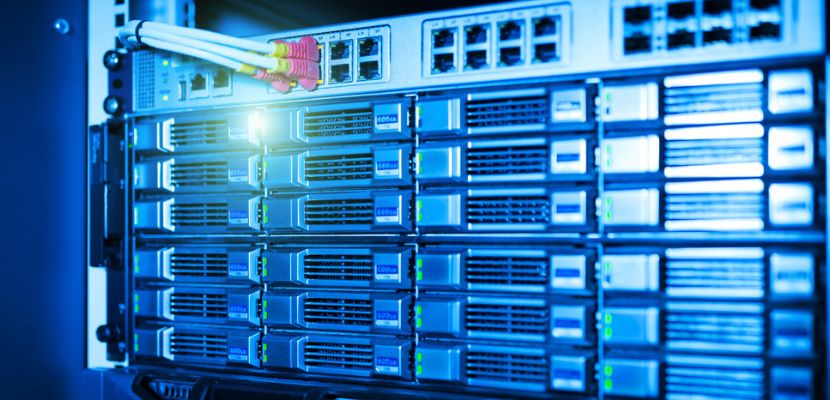
Choosing between a bare metal and a dedicated server depends on the organization’s business needs and budget requirements. Bare metal servers are suitable for businesses with variable workloads that require direct access to raw resources from the physical servers and the flexibility of cloud computing. Bare metal servers provide a great environment for developing high-performance computing projects, big data analytics, or applications with fluctuating traffic. Since they are based on the pay-as-you-go pricing model, bare metal servers are recommended to organizations with limited budgets that seek cost-effective solutions.
On the other hand, dedicated servers are ideal for businesses that require a long-term, stable, and consistent computing environment, such as high-traffic websites, dedicated gaming servers, or large ecommerce platforms. Organizations seeking complete control over hardware and software configurations benefit from dedicated servers and their unique setup. In addition, the risks associated with using dedicated servers are minimal compared to other server hosting options since only one user is present on the network. This isolation of systems also guarantees uninterrupted performance.
Not sure which server to choose for your business? Compare our offering of fully isolated and virtualization-free bare metal cloud and dedicated server solutions to make a smart and informed decision for your business success.
Navigating the Server Landscape
The choice between bare metal and dedicated servers should be based on your specific business needs. If you are looking for scalability and flexible pricing, bare metal servers are an excellent choice. On the other hand, dedicated servers are ideal for organizations that require complete control over resources and impeccable security.
